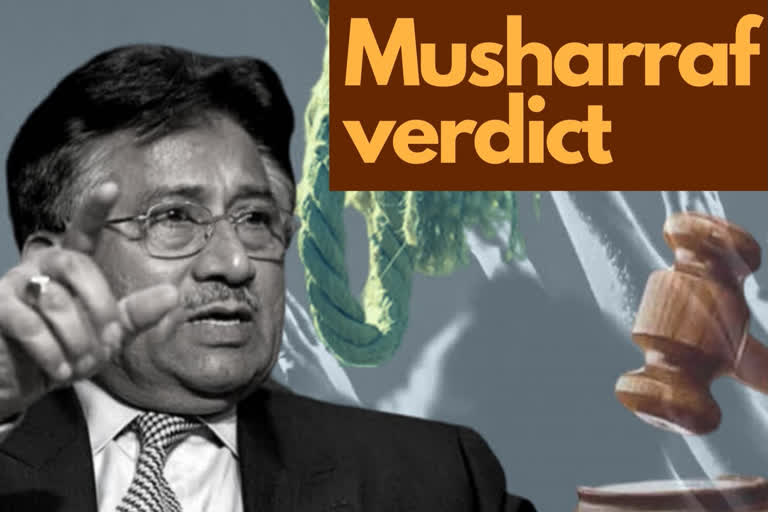Hyderabad:On 17 December, a three-member bench of the special court, headed by the Peshawar High Court Chief Justice Waqar Ahmad Seth, pronounced a death sentence for the former President of Pakistan General Pervez Musharraf. The court found Musharraf guilty of high treason for abrogating the Constitution and imposing an extra-constitutional emergency in Pakistan in November 2007.
In the detailed judgment released two days later, the judges also came out strongly against the Pakistan Army. Justice Seth wrote in the verdict, “It is unbelievable and unimaginable that such an extreme act is committed alone by a single man in uniform, the then Corps Commanders Committee, in addition to all uniformed officers who were guarding him each and every time, with boots on, are equally and fully involved in the act and deeds of the accused person."
Musharraf, who has been in exile since 2016, is unlikely to face the hangman anytime soon.
Still, the verdict could have far-reaching implications on the nature of civil-military relations in Pakistan. I use the word ‘could’ because it is now wholly dependent on the politicians of Pakistan whether they see this as an opportunity to escape from under the military’s domination of the political landscape.
The special court has shown the way. In the past, Pakistani courts have been accused of consenting to the frequent takeover of the country by the army, quoting the 'Doctrine of Necessity'. This doctrine states that an extra-constitutional authority can take over a government for the good of the people.
Pakistan’s Supreme Court justified the military coup by General Zia ul Haq that overthrew the elected Prime Minister Zulfikar Ali Bhutto in 1977. The Supreme Court made a similar decision in Musharraf's coup against Prime Minister Nawaz Sharif.
The judiciary is now asserting itself. Last month, the Supreme Court blocked the three-year extension granted to the Army Chief General Bajwa by Prime Minister Imran Khan.
Taken together, the two verdicts send a clear signal to the Pakistan Army that it is not above the law.
